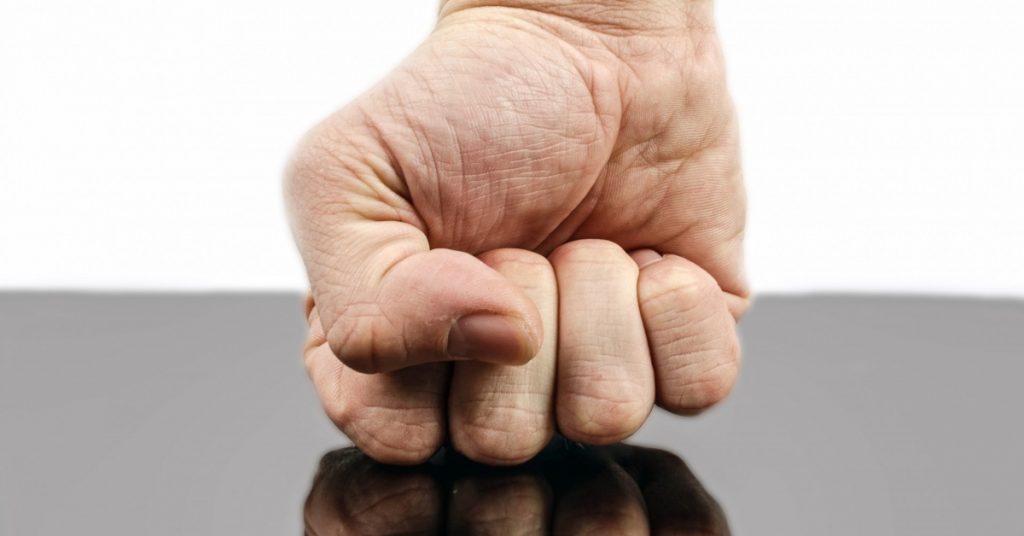Listen to this episode of the Focus with Marlene Podcast
Get caught up with all episodes in the “Make Stress Work for You” series
Anger, like all emotions, has a purpose. It is neither bad nor good on its own. When managed and expressed appropriately, it can be an important ally and friend.
The energy that anger creates can help us make important changes. When used as a motivational force it gives us the motivation to change our lives for the better.
Left unchecked, however, it simmers beneath the surface, ready to explode at any moment. Anger then focuses on everything that is and has been going wrong in our lives. It keeps us from seeing anything good.
It is to our benefit to find out how we acquired an angry-aggressive habitual response before it becomes a wildfire that burns everything in its path. When we react without restraint or before we accurately identify the problem connected to it, we not only inflict pain on others, but to ourselves. When it becomes our typical response to anything annoying, we have a major problem.
The Good, Bad and the Ugly
Our emotions change depending on the situations we find ourselves in and the interpretation we make at those times. While there are some hereditary differences in temperament that can influence our emotional responses, they are just that – a predisposition. There isn’t an anger gene any more than there is a smart gene.
When anger becomes our first response to events, it may have its roots in the past when we had been angry but were not allowed to express it in any way. Perhaps we had been treated unfairly and our good intentions and sacrifices were dismissed as nothing. We begin to look for meanings attached to what people say or do and put our own negative spin on it. Wounds from childhood run deep. While they may be buried in our sub-conscious, we continue to be influenced by them.
Reactive vs Proactive
When you are reactive, you react emotionally to whatever is happening in the moment. When you become proactive, you look for potential problems and ways to resolve them before they happen.
When reactive, you believe your feelings of distress are a result of what others are doing. You become defensive and go on the attack. Behaviors are motivated by impulse rather than thoughtful choices.
In fact, you don’t believe you have any legitimate choices. Opportunities are for other people and you are simply a victim of circumstances. You don’t believe you have any control over your life, and you are constantly looking for someone or something to blame.
Reactive people often become aggressive.
Developing an Anger Habit
Like any habit, anger, when overused, can soon become a habit. We are the ones who decide whether we will develop an anger problem.
Like any habit, anger can be reduced and replaced.
8 warning signs of an anger habit:
1. Triggering event.
Anything that we perceive as emotionally threatening in some way. Within families, it is that immediate reaction to a child’s temper, talking back or ignoring the rules. Or hypersensitivity to anything your spouse says. We can change our response at this stage.
2. Warning signs – emotional or physical.
What are some of your first emotional responses? Become aware of what they are. You may be feeling hurt or anxious, threatened or fearful. There’s often a combination of emotions that go unnoticed at first until we train ourselves to become aware of them. Go back to times when you got angry. What were your feelings just before that anger kicked in?
3. Thought patterns.
Feelings don’t happen on their own; they are a response to our interpretations and perceptions. Ask yourself, why am I getting so angry? Is this incident worth getting angry over? Has anger worked for me in the past, and if so, did it actually resolve my problem or create another problem? Is there another way I can solve this problem? What was accomplished when my anger went unchecked?
4. Choices available to us when we are angry.
We can allow the anger to grow and fester. We can get angry and fight. Or we can choose to step out of our comfort zone and develop the courage to engage in a more constructive way. It takes courage to choose a different way to handle disputes. Courage is defined not just as the ability to conquer fear or despair but choose a course that is not easy but more productive.
5. Battle signs.
When we have allowed anger to go to the battle stage before considering alternatives, we have put ourselves in a fighting mode. We gear up to destroy an enemy and defend ourselves. The problem is the battlefield involves our families and neighbors and colleagues and friends. The enemy in this battle becomes our loved ones. Is this who we want to do battle with?
6. Engagement.
As we become embroiled with anger, we lose control of our emotions and ourselves. We are reacting and not thinking. At this junction, we are no longer in control of what we are doing.
7. Consequences.
When anger has spent its emotional power, we can see the devastation it has produced and those who have been wounded. Sometimes the wounding can be fatal in terms of our relationships. When we choose our responses to life, we are choosing the consequences as well.
8. Recovery and evaluation.
When the battle is over, emotions calm down and you have an opportunity to examine what has happened. If you take time to do an assessment and are really honest with yourself, you will be able to answer the following: Did I get the outcome I wanted? If you do not assess the consequences of your actions, you will continue to repeat the same pattern. Only the fallout gets worse.
We can change directions, replace habits and discover different ways to resolve problems when we recognize our patterns of response to circumstances, when we ask pertinent questions and when we take time to prepare ourselves for different responses.
Instead of following the typical old pattern of getting angry and responding without thinking, we can do the following:
Stop.
- stop avoiding your problems or denying they are there
- stop rationalizing
- stop pushing problems away
- stop medicating with drugs or alcohol to dull your pain and underlying fear
Allow yourself to feel your emotions. Then ask yourself:
- why do I feel this angry?
- what am I supposed to be learning here?
- what is my anger trying to tell me?
Identify the problem and look for solutions.
- what constructive options do I have?
- what responsible behaviors can I apply?
- what positive changes do I want to have happen?
- What problem solving strategies can I use to bring about a positive conclusion?
Remember.
Anger has a purpose. Connect with its message and all the other emotions that are often buried with it: fear, guilt, pain. Work through them to healing.
If you have had a problem with anger, seek out a good professional mental health counselor to help you through underlying long-held issues attached to it.
Do you want to turn your stress into a positive force?
 My Make Stress Work for You bundle will help you:
My Make Stress Work for You bundle will help you:
- Identify the personal stressors that create high levels of distress in your life
- Learn how to identify problems and find ways to solve them
- Replace unhelpful thinking with constructive and practical ways to lower levels of fear, worry, and anxiety
The book bundle includes:
- ebook
- audio recording of each chapter’
- companion Study Guide & Personal Application Workbook
- Four bonus guides
Click here for details and to order


